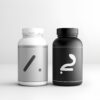Ginger Root Benefits: A Powerful Superfood for Health and Wellness
Ginger root, or Zingiber officinale, has roots in traditional medicine and cooking since centuries. This subtle spice has plenty of benefits ranging from helping in digestion to dealing with inflammation. This article talks about the benefits of ginger root, how to incorporate it into your daily routine, and why it deserves to be in your kitchen and medicine cabinet.
Nutritional Profile of Ginger Root
Some of the essential nutrients surely packed in ginger includes:
- Gingerol – Primary gingerol is the main ingredient that gives ginger the medicinal values.
- Vitamins – Supports overall health including vitamin C, B6, and E.
- Minerals – Includes potassium, magnesium and manganese that are vital for various bodily functions.
- Antioxidants – Reduces oxidative stress and helps reduce chronic diseases.
Top Health Benefits of Ginger Root
1. Supports Digestive Health
One of the most popular benefits of ginger is its ability to help in digestion. It helps in the production of saliva and bile while reducing bloating, indigestion, and nausea. Ginger is proven effective against motion sickness for travel and also for morning sickness for pregnant women.
How to Use:
- Drink ginger tea after meals for better digestion.
- Use fresh ginger for soup and stir fry dishes.
2. Relieves Pain and Inflammation
Ginger is an incredible natural remedy for inflammation in the muscles and arthritis due to its anti-inflammatory properties. One study showed that people with osteoarthritis consumed ginger on a regular basis and noticed a significant reduction in their pain levels alongside improved joint mobility.
How To Use:
- Use ginger supplements to relieve arthritis pain.
- Massage sore muscles with ginger-infused oil.
3. Strengthens the Immune System
Drinking ginger tea can be exceptionally beneficial during the cold season. The anti-fungal and antimicrobial properties of ginger make it particularly useful for warding off the cold, flu, and even common respiratory infections.
How To Use:
- Consume ginger tea with honey and lemons when sick.
- Use fresh ginger as an add-in for smoothies for a boost.
4. Metabolism and Weight Loss Aid
Ginger is well known as an appetite suppressant, making it useful for weight management. Ginger elevates thermogenesis, a process that increases calorie and fat burn, resulting in enhanced metabolism.
How To Use:
- Consume ginger tea before meals to reduce appetite.
- Integrate ginger into detox water and healthy recipes.
5. Promotes Heart Health
In addition to relieving pain and inflammation, ginger has the ability to lower cholesterol levels, reduce blood pressure, and act as a blood thinner. This correlates with improved cardiovascular health. Ginger is great for preventing heart disease and strokes in the long run.
How to Use:
- Add ginger in recipes for heart-friendly dishes.
- Consult your doctor before taking ginger supplements.
6. Helps Control Sugar Levels
Studies show that ginger can aid the improvement of insulin sensitivity and lowering blood sugar levels, which is good for diabetics and pre-diabetics.
How to Use:
- Drink ginger-infused water first thing in the morning.
- Add ginger in meals suited for diabetic patients.
7. Helps in Brain Function and Prevention of Neurodegenerative Diseases
Ginger’s antioxidants and bioactive compounds help in withstanding cognitive decline due to aging or even Alzheimer’s and Parkinson’s diseases.
How to Use:
- Use ginger in recipes containing ingredients known to stimulate the brain such as turmeric ginger tea.
- Fresh ginger ought to be incorporated in meals to help with cognitive function on a daily basis.
8. Eases Menstrual Pain
Research has shown that ginger works as well as some pain medications for period cramps. It helps by reducing inflammation and muscle relaxation.
How to Use:
- Drink ginger tea when on your period.
- Take ginger supplements during menstruation for relief from pain.
9. Helps Prevent Infections
Ginger’s ability to fight microbes makes it suitable for use in bacterial and fungal infections. It works on respiratory infections, gum disease, and even acne.
How to Use:
- For sore throat, ginger water gargle works wonders.
- Skincare products infused with ginger can be used for acne-prone skin.
10. Supports Detoxification
With its liver-supporting properties, ginger aids in serving detox diets for people looking to rid the body of toxins.
How to Use:
- Drink ginger and lemon detox water in the morning.
- Add ginger into your green juices and cleansing teas.
How to Incorporate Ginger into Your Daily Diet
The best part about ginger is that it’s easy to incorporate into one’s diet and tastes delicious. Here are some simple options:
- Ginger Tea: Prepare by steeping fresh ginger slices into hot water and adding honey and/or lemon.
- Smoothies: Blend a piece of fresh ginger or add powdered ginger into your morning smoothie mix.
- Soups and Stir-Fries: Grated ginger can be added into soups, sauces, stir-fries to give an additional spicy flavor.
- Baking: Cookies, cakes, and bread can have ginger added into them for a more warm-tasting flavor.
- Juices: Ginger can be added alongside fresh fruits and vegetables to create a delightful juice.
Possible Side Effects and Precautions
For people that suffer from certain conditions, consuming ginger in excess can lead to:
- Heartburn
- Stomach discomfort
- Reduction in blood sugar (for diabetics)
- Heightened risk of bleeding (for those on blood thinners)
Pregnant and breastfeeding women should check with their doctor before taking ginger supplements.
Conclusion
With everything from better digestion to lower inflammation and enhanced immunity, ginger root is a powerhouse of health benefits. Using ginger as a tea, in meals, or as a supplement greatly improves your well-being. So why not start reaping the benefits of this superfood today?














Add comment